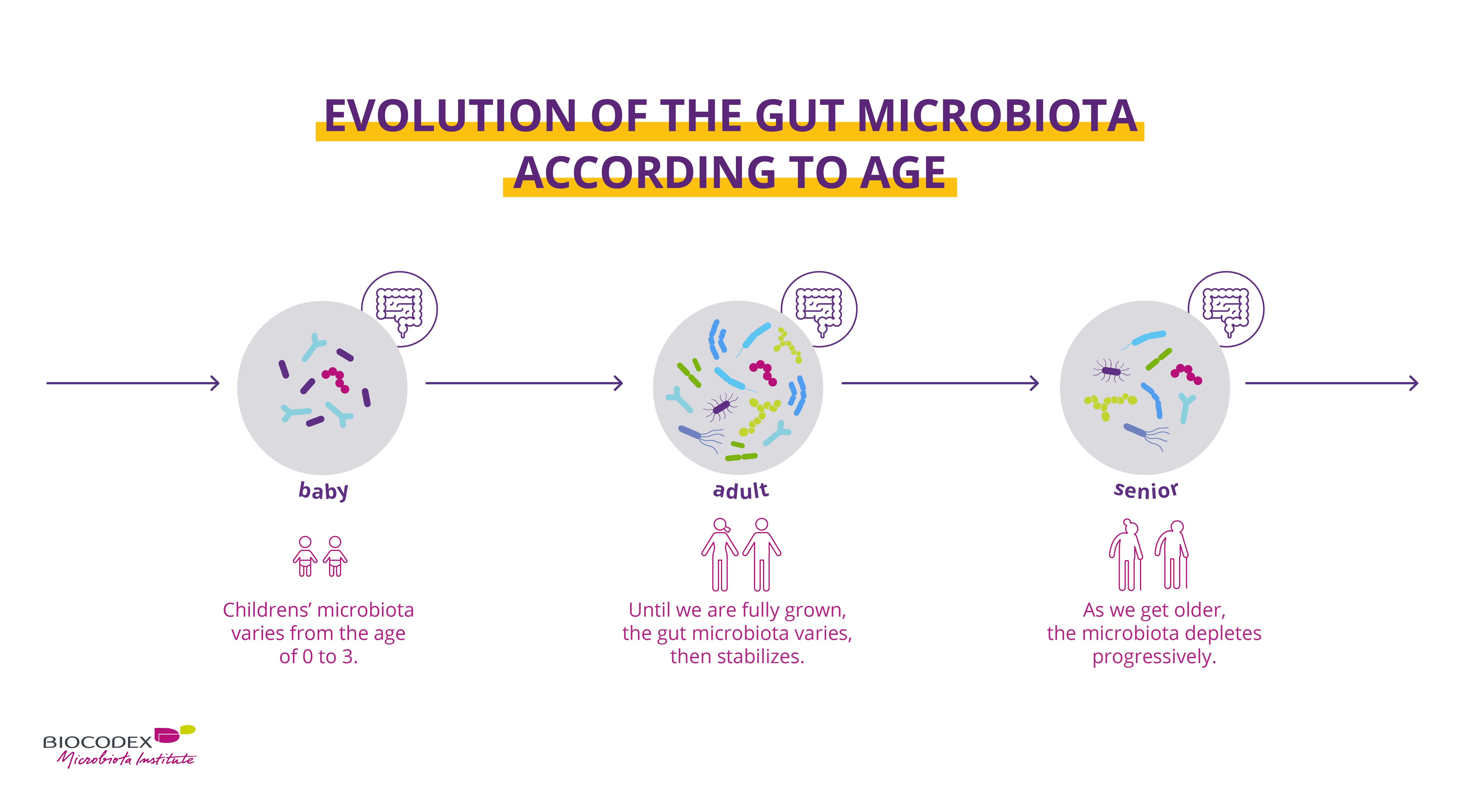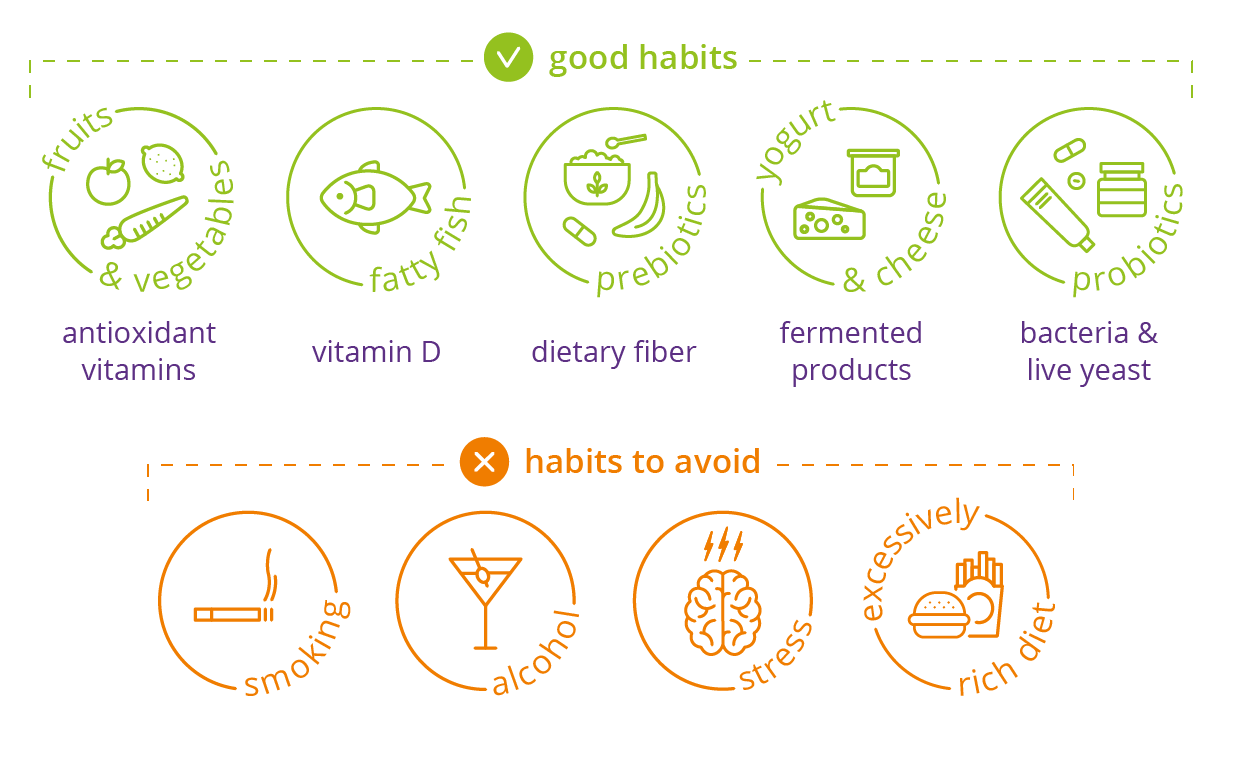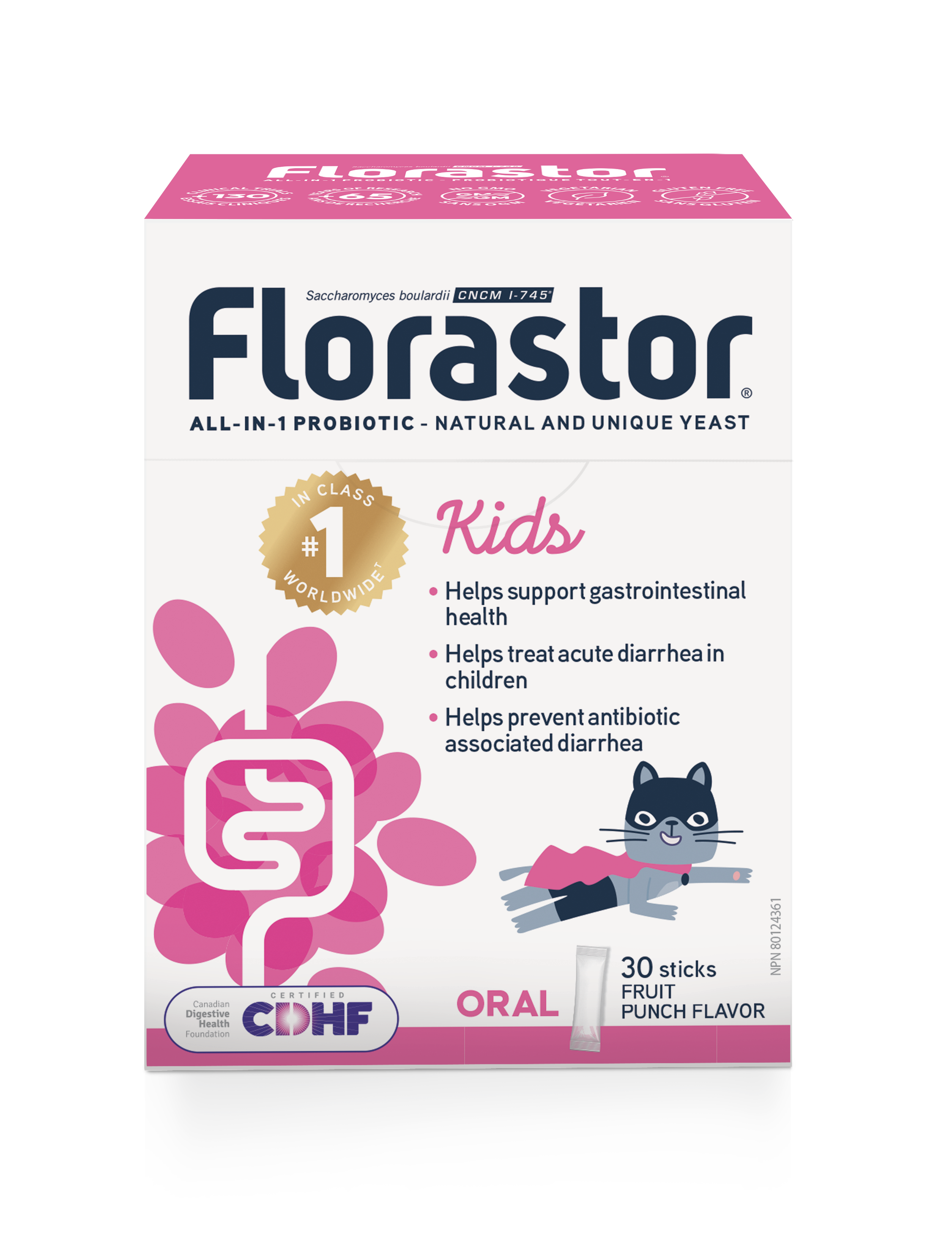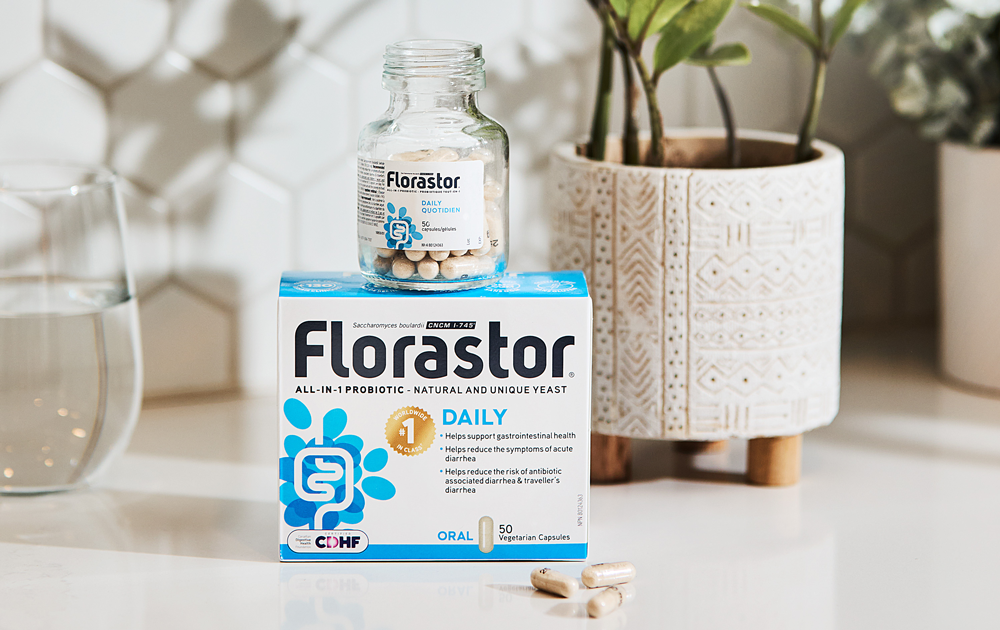"The stomach bug." It's rarely serious, but it's still dreaded. Vomiting, diarrhea, feeling weak – we don't like to see our little ones feeling unwell, and we certainly don't enjoy it ourselves. While there's no magic solution to avoid catching the virus that causes gastroenteritis, having a healthy microbiota could potentially reduce the intensity and/or duration of diarrhea symptoms.
What is the microbiota ?
The gut microbiota consists of the collection of bacteria and other microorganisms that inhabit our intestines. There are over 100 trillion of them in there! The balance of the microbiota relies on the quantity and variety of microorganisms present. They need to be numerous and diverse in order to fulfill several important roles for our health. They contribute to the proper functioning of the immune and nervous systems and to the growth of our children.
The significance of its role in the immune system becomes evident when you consider that at least 80% of immune cells are located in the intestines. The beneficial bacteria in the gut microbiota form the first protective barrier. They act as little soldiers, preventing harmful bacteria from colonizing the intestines and multiplying, thus preventing foreign substances from entering the bloodstream.
How is the gut microbiota formed ?
The gut microbiota begins to develop from birth through the various interactions a baby has with its environment. It takes about 3 years to fully establish, diversify, and stabilize. The first three years of life are crucial in this regard. While improvement is possible throughout life, this "foundation" is paramount.

A young child encounters diverse bacteria through actions like receiving hugs, breastfeeding, touching pets, putting toys (or sand!) in their mouth, and more. All of this is beneficial for diversifying and strengthening their microbiota. A varied and fiber-rich diet is also incredibly important for promoting the development of a healthy microbiota.

Why is having a balanced microbiota important ?
The balance of the gut microbiota is delicate. Viruses, antibiotics, and/or poor nutrition can negatively impact it. When bad bacteria outnumber the good ones, the microbiota becomes imbalanced, a condition known as dysbiosis. This imbalance of the gut microbiota is associated with various health issues, including infections and allergies, and even the development of diseases such as type 2 diabetes, obesity, and chronic inflammatory bowel diseases.

What is the link between the microbiota and gastroenteritis ?
Gastroenteritis is an extremely contagious inflammation of the intestinal and stomach lining. In children, it's generally caused by a bacterium called Rotavirus. Diarrhea leads to a depletion of the bacterial barrier and consequently results in dysbiosis.
Children can contract gastroenteritis by coming into contact with another person who has it, or simply by touching a contaminated object and then putting their fingers in their mouth. It's highly contagious. Hygiene measures like handwashing and cleaning potentially contaminated surfaces with a disinfectant reduce the risk of contracting or spreading gastroenteritis. Of course, it's also advisable to keep the sick child at home. As parents, we avoid sharing the same glass or eating utensils with our little ones, as protecting ourselves can help us better care for our sick kids.
Gastroenteritis can manifest in several ways: vomiting, diarrhea, abdominal pain, loss of appetite, weakness, and in some cases, aches and fever. Fever, vomiting, and diarrhea tend to lead to dehydration, which can also have serious consequences. Gastroenteritis typically lasts from 1 to 3 days. If symptoms persist, a doctor should be consulted.
How can I treat Gastroenteritis?
When a child has gastroenteritis, the priority is to prevent dehydration. So, it's crucial to ensure the sick child stays well hydrated. Additionally, if we could reduce the duration and intensity of symptoms, we would. In this context, the best thing we can do is give the intestinal microbiota a helping hand in defending us.
According to available studies, probiotics could help restore the microbiota by altering its composition, thus aiding in reducing the intensity and duration of diarrhea associated with gastroenteritis. Certain strains, such as Saccharomyces boulardii found in Florastor supplements, offer anti-inflammatory properties for the intestinal mucosa. Moreover, studies have demonstrated that Saccharomyces boulardii significantly reduced the duration of diarrhea by a day and can also shorten vomiting duration in infants with acute diarrhea. For all these reasons, the World Gastroenterology Organization (WGO) recommends Florastor to prevent the risk of diarrhea associated with gastroenteritis. Florastor is an all-in-one probiotic supplement for the whole family and can be consumed from the age of 3 months. There are specific Florastor supplements designed for the youngest members: Florastor Baby and Florastor Kids. In convenient sachets, they don't require refrigeration and can be taken at any time of the day, even while taking antibiotics. Simply mix the contents of the sachet with food, breast milk, or infant formula.

References
1. Kluijfhout S, Trieu TV, Vandenplas Y. Efficacy of the Probiotic Probiotical Confirmed in Acute Gastroenteritis. Pediatr Gastroenterol Hepatol Nutr. 2020 Sep;23(5):464-471. doi: 10.5223/pghn.2020.23.5.464. Epub 2020 Aug 27. PMID: 32953642; PMCID: PMC7481057.
2. Gaufin T, Tobin NH, Aldrovandi GM. The importance of the microbiome in pediatrics and pediatric infectious diseases. Curr Opin Pediatr. 2018 Feb;30(1):117-124. doi: 10.1097/MOP.0000000000000576. PMID: 29206649; PMCID: PMC6588283.
3. Saeed NK, Al-Beltagi M, Bediwy AS, El-Sawaf Y, Toema O. Gut microbiota in various childhood disorders: Implication and indications. World J Gastroenterol. 2022 May 14;28(18):1875-1901. doi: 10.3748/wjg.v28.i18.1875. PMID: 35664966; PMCID: PMC9150060.
5. Szajewska H, et coll. 2020. Revue systématique avec méta-analyse : Saccharomyces boulardii pour le traitement de la gastro-entérite aiguë chez les enfants - mise à jour 2020).
6. Burande MA, et coll. 2012. Efficacité de la souche Saccharomyces boulardii dans la diarrhée aiguë chez l'enfant : une perspective indienne)





